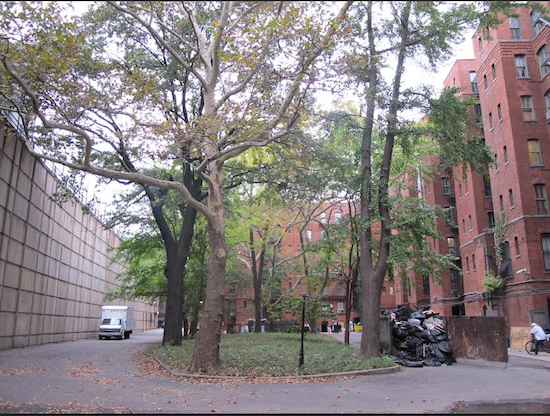Riverside Houses parking garage permit denied
Landlord Claims New Underground Facility will Benefit Residents While Keeping Courtyard Intact

Shown is the courtyard of the Riverside Houses. An unrelated renovation of the buildings’ trash compactor led to a pile-up of refuse. Photo by Matthew Taub
UPDATE: A judge has now denied the Pinnacle Group’s Article 78 Petition, while the Department of Buildings (DOB) permit remains in effect. The Riverside Tenants Association (RTA) is contemplating a “contempt of court” process or even legal action against the City of New York if the DOB permit is not revoked, sources say.
“We believe the Court’s decision was wrong and are reviewing next steps,” Ken Fisher, a lawyer for the Pinnacle Group. “We will address efforts by the tenants association to interfere with the professional judgment of the Buildings Department if and when it occurs.”
* * *

Brooklyn Heights
View MoreRead the Brooklyn Height's Press and Cobble Hill News. Find out more about Brooklyn Height's History here.